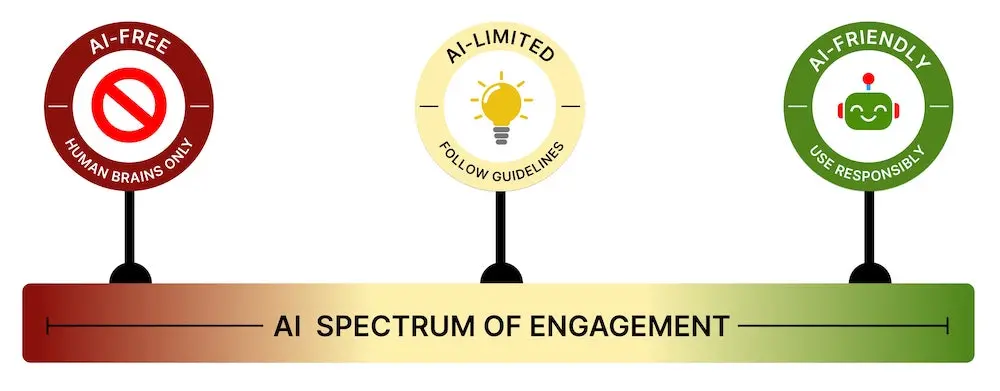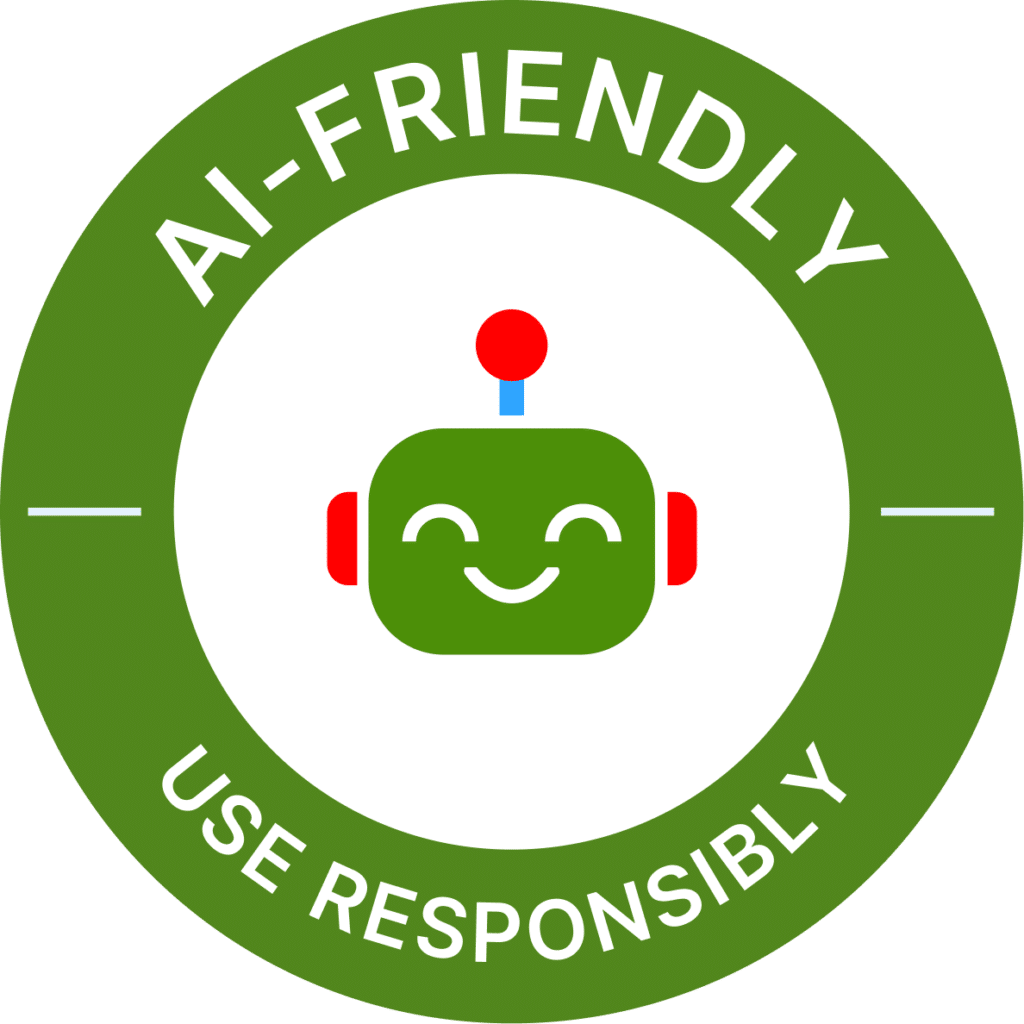One of the best things you can do to engage with GenAI in teaching and learning is simply to talk to your students.
The more you can set clear expectations and cultivate trust, the more likely you’ll be to a clear path together through what can feel like uncharted territory.
Talking with and teaching your students how to interface with technology—whether that’s GenAI or another form of technology–is foundational to a teaching practice that will prepare students for the literacies they will need in their future, whether inside or outside of the classroom.
Zones of Engagement
Providing students with clear zones of engagement with AI encourages them to adopt a mindset around engagement with AI that is context-dependent, teaching them that their interface with this– and any– technology is dynamic and requires flexibility in its appropriate use.

The following visuals that indicates how faculty might provide students with shared language and visual cues for the engagement with AI they should bring to any particular assignment or assessment.

AI-FREE ASSIGNMENT
No AI use allowed
Provide clear rationale for why AI is not to be used, connecting your reasoning to the learning outcomes for the course.
If you do decide to ban AI, it’s important that you have a conversation with students about your rationale so that they understand why you’ve made this choice. To not do so is a missed opportunity to help your students think critically about the technologies in their lives as well as the way their choice to use particular technologies impacts their learning process.

AI-LIMITED ASSIGNMENT
You can use AI within Guidelines
In this area of your course, students are given specific guidelines for how they may engage with AI as part of their work. You also provide rationale for why these limitations exist and how they connect to the learning outcomes for the course.
Examples include:
- Ideation and Research (AI can be used to help generate ideas, organization and information gathering)
- Limited Word Usage (AI language can be inserted but cited within an assignment)

AI-FRIENDLY ASSIGNMENT
Use Responsibly
In this area of your course, students are encouraged to use AI in whatever way they find helpful or useful for them. You provide any expectations for citations and guidance in the risks and strengths of using AI.
For example, you might add the provision that students cite how they used AI and provide something like this MLA resource for guidance.
These icons were inspired by Lance Cummings in his article “Setting Default Constraints for Creative AI in the Classroom.
If you’re interested in piloting versions of this guide in your course, please reach out to CDIL for more information.
Faculty Examples:
Rita Owens, Business Communications
Guideposts to Learning with AI: This blog post describes how Prof. Owens used the AI guideposts in her business writing courses.
Sylvia Sellers-García, History
Opening Up About AI: A Conversation with Students: Prof. Sellers-García reflects on what she learned from talking to her students about AI and rethinking some of her assignments.
